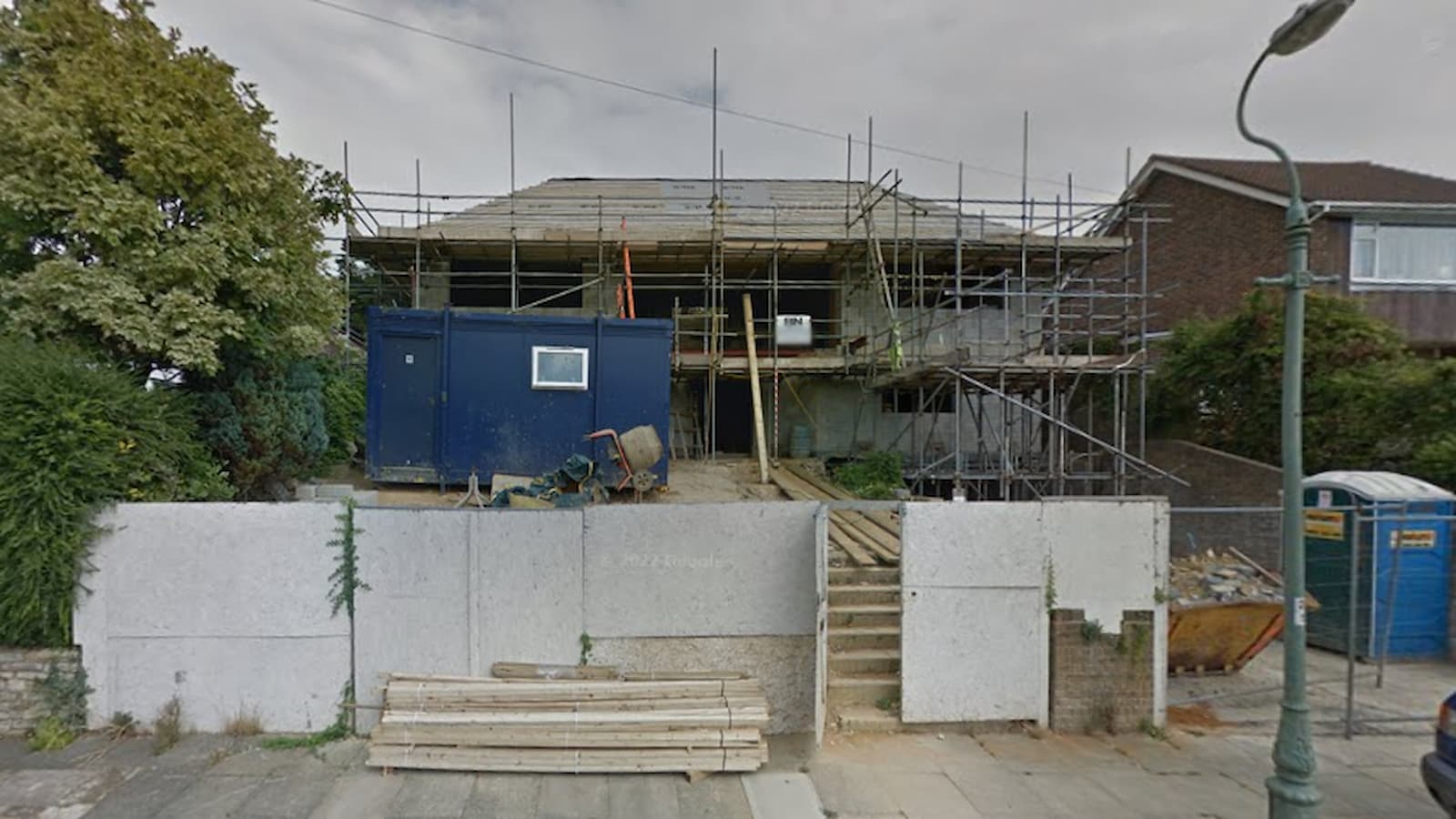Couple hit with £80k Community Infrastructure Levy bill for self-build after failing to gain planning in time
The couple failed to gain planning permission before starting work on their self-build meaning they could not apply to be exempt from the Community Infrastructure Levy

A couple were forced to pay a £82,994.88 Community Infrastructure Levy (CIL) charge before being allowed to continue building their house.
Habib and Jade Esmaeili from Brighton were issued a warning notice by Brighton & Hove Council as they failed to gain permission before starting work on their self build.
The couple are now threatening legal action against the council claiming they should have been exempt from the bill, despite them initially failing to gain planning permission.
What was being built?
The couple were seeking to replace a home they knocked down with a self-build, three-storey, five-bedroom house with a front garage.
The home was partially built with white sand cement render, grey powder-coated aluminium doors and windows and a garage.
The couple were building the house when they were unexpectedly told to stop and a warning notice was placed on the site by the council in February 8, 2023.
Why were the couple asked to pay a CIL?

The couple were told to halt construction of their new home after being told they had an unpaid CIL bill. The CIL is a fee imposed by local authorities on new developments within their jurisdiction to fund necessary infrastructure.
Get the Homebuilding & Renovating Newsletter
Bring your dream home to life with expert advice, how to guides and design inspiration. Sign up for our newsletter and get two free tickets to a Homebuilding & Renovating Show near you.
Most developments exceeding 100 square metres, such as this home, are subject to the levy, although self-builds are usually exempt from this charge providing they meet certain requirements and the correct forms are submitted at the right time.
However, as this home was partially built without planning permission the couple failed to apply for exemption from the CIL bill.
A demand notice was sent to the couple stating: “By commencing development prior to this permission being granted, the right to any Community Infrastructure Levy self build exemption was lost, along with any payment installments.”
A CIL bill was sent by the council in December 2022 for £79,042.88 and in February 2023 a late payment charge of £3,952 was added, totalling £82,994.88.
Couple pay bill but consider taking legal action
The couple decided to pay the CIL bill in order to continue the work on their self-build, but have said they will continue disputing the bill.
Jade Esmaeili said to Brighton and Hove News that they were also considering taking legal action against Brighton & Hove Council as she stated: “We were told CIL was exempt and once granted in July it would remain exempt.
“The demand notices were responded to immediately with something like 72 emails over the dated period and up until now, questioning and demanding answers as to why it is now not CIL exempt, why there is a demand, can a payment plan be set up during the dispute period.”
She claims that they are not the only ones who have been issued a CIL bill incorrectly as she said: “There is a much bigger picture here in which the council are issuing CIL demands to local families and we are not the only ones.”
The couple have been told they can now carry on work on their self-build after retrospective planning was approved and the bill was paid in full.

News Editor Joseph has previously written for Today’s Media and Chambers & Partners, focusing on news for conveyancers and industry professionals. Joseph has just started his own self build project, building his own home on his family’s farm with planning permission for a timber frame, three-bedroom house in a one-acre field. The foundation work has already begun and he hopes to have the home built in the next year. Prior to this he renovated his family's home as well as doing several DIY projects, including installing a shower, building sheds, and livestock fences and shelters for the farm’s animals. Outside of homebuilding, Joseph loves rugby and has written for Rugby World, the world’s largest rugby magazine.
